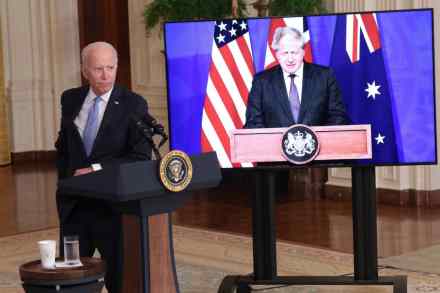Why Johnson sounds pessimistic about Cop26
The Prime Minister has touched down in New York for the UN General Assembly where he hopes to press countries on committing funds for the Cop26 climate talks. Ahead of the summit, Boris Johnson has urged wealthier countries to contribute to a £100 billion a year funding target aimed at helping developing nations to cut carbon emissions. That commitment is viewed as key to getting the ball rolling when the negotiations get underway at the summit in Glasgow in November. Behind the scenes there is increasing pessimism about what Cop26 will achieve But things aren’t going to plan. Speaking to hacks on the trip, Johnson said it would be a stretch to get the money




















